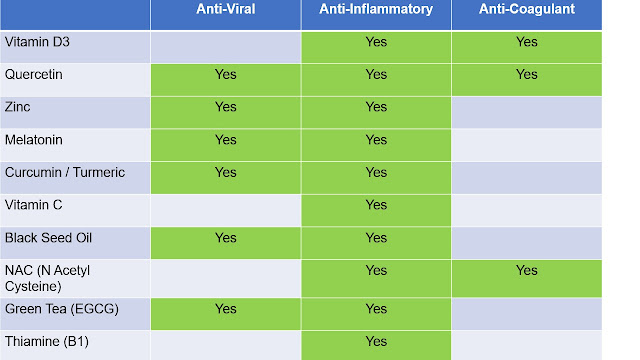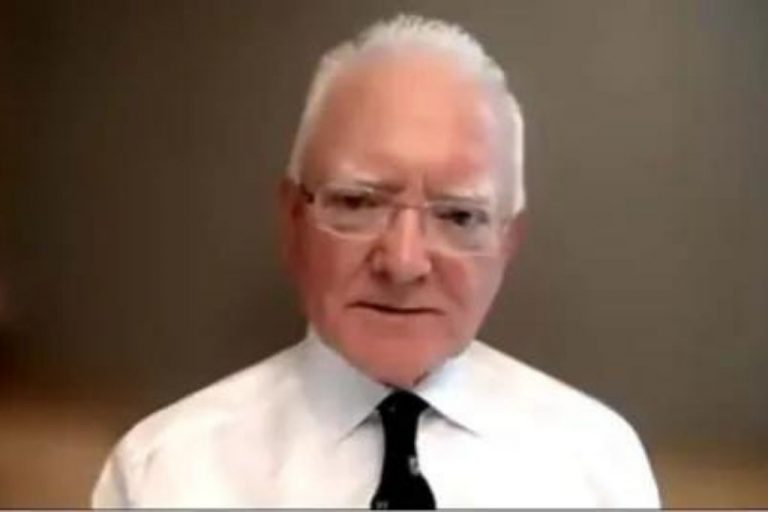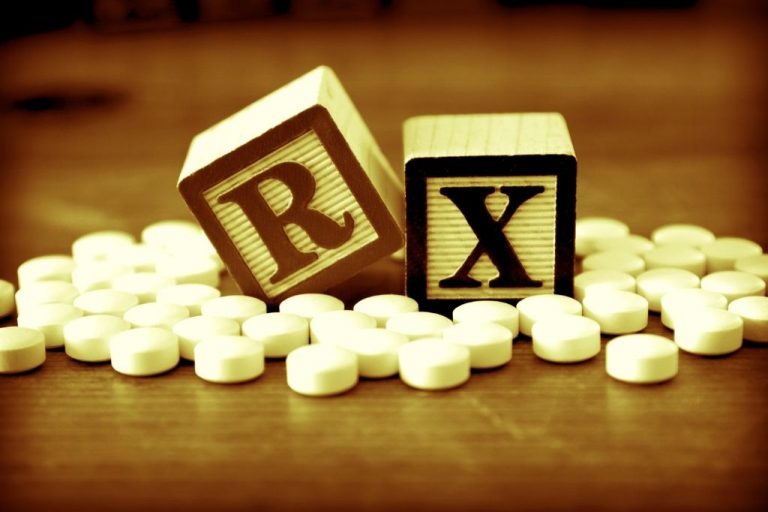Fundamentals of Long Covid-19 Syndrome

The persistence of symptoms after an acute Covid-19 infection, or following inoculation with a novel Covid-19 vaccine1 is known as Long Haul Covid-19 Syndrome (LHCS) or Post Acute Sequelae of Covid-19 (PASC), commonly referred to as “Long Covid”. It needs to be said at the start of course that no-one has isolated the actual virus yet.
Recognised as a disabling condition experienced by between 10 to 80% of patients who have recovered from acute infection1, 2, Long Covid can involve multiple systems. The huge variation in survey results is an immediate red flag as to the accuracy and reliability of assessing symptoms; to observer bias, and the nocebo effect ( the opposite of placebo, where an expectation of harm can produce symptoms). It lasts for significant periods of time, at least more than three months and often more than six months after the first symptom onset3.
Due to the wide array of symptoms experienced differently by individuals, it is difficult to define LHCS. One or more of lung, brain, heart, gastrointestinal, blood, skin and other body systems can be involved2. Since the later and more severe consequences in a minority of infections involve pathology of the blood vessels, this is no surprise. However, the body burden of spike protein can be much higher following vaccination – and in repeated waves after each dose – so that longer and more severe symptoms can be expected, and are seen. The situation is confused though, as worldwide data shows that many catch, and re-catch, covid after the vaccine is introduced in their country so that “natural infection” following vaccination may provoke chronic inadequate immune stimulation as part of antibody dependent enhancement. We have warned of ADE many times. And yet, touting risks of LHCS is being used as a nudge to get people vaccinated.
What Causes Long Covid
LHCS remains poorly understood and knowledge is constantly evolving as data emerge on a backdrop of limited formal research. There remains a blinkered approach to acknowledging any vaccine harm at all of course, and funding is (not) directed accordingly. Some collaborations have formed to further advance clinical understanding of the condition and effective treatments. Examples include Front Line Covid-19 Critical Care Alliance (FLCCC) and Long Covid Alliance.
A current hypothesis from an August 2021 peer reviewed study4 suggests that Long Covid symptoms are caused by “inflammatory molecules trapped in micro clots circulating in the blood“. These molecules appear to be, or to include, persisting viral debris from the SARS-CoV-II spike protein. Other studies have shown destruction of mitochondria, the power house of the cells, after attachment of the spike protein to the cell membrane, as well as a change in gene expression towards overproduction of attack chemicals by a provoked immune system.
Other hypotheses are discussed at length by Yong3. These include, but are not limited to, ongoing respiratory symptoms due to pulmonary fibrosis; cardiac symptoms caused by heart muscle inflammation; and interactions between clotting processes and blood vessels feeding the nerves, which can cause fatigue as well as sensory, cognitive and psychological problems.
It can be no surprise then that long covid is also being experienced by individuals who have not been exposed to the virus, but have received the covid injections using the SARS-CoV-II spike protein as the focus antigen to be churned out by the hijacked cells5.
Spike: Long Covid vs Vaccine Injury
As hinted, the common feature (and therefore perhaps the most likely cause of many of the symptoms) of people suffering symptoms due to Covid-19 infection, Long Covid or post-Covid-19 injections, is the spike protein.
It doesn’t matter how you get the spike protein- whether from the injection or from the virus, it can cause LHCS.
Those who have had the injection, may produce spike protein for many months, suffering symptoms of long covid, which are in fact due to the spike their body is still making – in effect a vaccine injury. Watch an easy to understand explanation here.
Thus Long Covid can be caused by getting the virus or by getting the Covid injection.
World Council for Health refer to spike protein related illness as “spikopathy”6. The multiple and varied forms (heterogeneity) of the syndrome suggests that there is a variety of pathogenic mechanisms5.
Symptomatology
Progression to Long Covid cannot be predicted by the severity of the acute infection. The syndrome is experienced by people of all ages, often following only mild to moderate Covid-19 cases. However, it seems likely that patients who did not receive adequate therapy during the acute phase of COVID-19 illness are more likely to develop Long Covid5. In fact this bombshell early treatment trial was stopped prematurely as benefits were so powerful it was considered unethical to keep the control group untreated. There was NO long covid! Other post-viral syndromes such as Chronic Fatigue (CFS), Postural Orthostatic Tachycardia (POTS) and Chronic Inflammatory Response (CIRS) are comparable to Long Covid. The gratifying difference is a slow but continuous improvement over time in those with Long Covid5.
The most commonly reported symptoms of LHCS are ongoing breathing problems and fatigue. Others listed by Yong include chest pains, palpitations and other cardiac issues; joint and muscle pains; cough; headaches and mental impairment; gastrointestinal symptoms; and sensory problems such as hearing impairment and loss of taste and smell. FLCCC include hair loss and sleep disorders as commonly reported symptoms. They cluster symptoms into the organ systems affected which assists with targeting treatments appropriately.
Treatment
As with acute Covid-19 infection, protocols are useful for guiding treatment of Long Covid but should be individualised to patient needs. One of the most practical Long Covid treatment protocols is i-Recover Management Protocol for Long Haul Covid-19 Syndrome (LHCS) published by FLCCC1. This starkly contrasts with the UK National Institute for Health and Care Excellence guideline7 which offers no specific pharmacological interventions.
Whilst early treatments are known to reduce the risk of progressing from acute Covid-19 to Long Covid, the experimental Covid-19 vaccines appear to be associated with progression to Long Covid in some people8. Many of the treatment approaches for Long Covid use the same molecules found to be effective as early treatments against Covid-19, suggesting spike protein is the culprit.
There are many nutraceuticals safely accessible without prescription which may help against Long Covid symptoms. These are outlined in 10 Natural Treatments for Long-Haulers and the action modes of useful nutraceuticals are shown here2.

A wider range of effective supplements are discussed at the World Council for Health’s Spike Protein Detox Guide6.
Using the Covid-19 Frontline Critical Care Alliance (FLCCC) Protocols1, 5, New Zealand Doctors Speaking Out With Science have developed a Long Covid Guideline to assist clinicians in diagnosing, treating and supporting patients who may be experiencing Long Covid.
NZDSOS can offer support to patients via the Health Help Line Online Clinic.
Watch: Vaccine Injury vs Long Covid
With thanks to CoronaVirus Plushie.
References:
- Frontline Covid-19 Critical Care Alliance (January 2022), I-RECOVER Management Protocol for Long Haul Covid-19 Syndrome (LHCS)
- OneDayMD (May 2022), 10 Natural Treatments for Long-Haulers
- Yong S. J. (May 2021). Long COVID or post-COVID-19 syndrome: putative pathophysiology, risk factors, and treatments. Infectious diseases (London, England), 53(10), 737–754
- Pretorius E. et al (August 2021). Persistent clotting protein pathology in Long COVID/Post-Acute Sequelae of COVID-19 (PASC) is accompanied by increased levels of antiplasmin. Cardiovascular Diabetology, 20(172)
- Frontline Covid-19 Critical Care Alliance (February 2022), An overview of the MATH+, I-MASK+ and I-RECOVER Protocols
- World Council for Health (Updated May 2021), Spike Protein Detox Guide
- National Institute for Health and Care Excellence (Updated November 2021), Covid-19 rapid guideline: managing the long-term effects of Covid-19
- Arjun M.C. et al (January 2022), Prevalence, characteristics, and predictors of Long COVID among diagnosed cases of COVID-19, medRxiv Pre-print






3 Comments
Comments are closed.